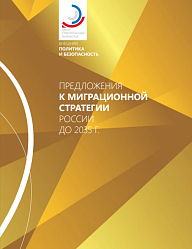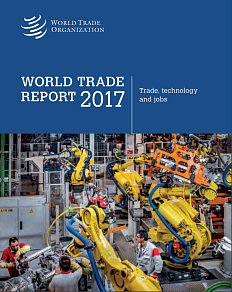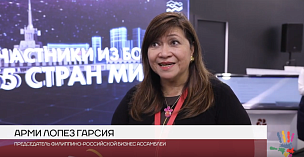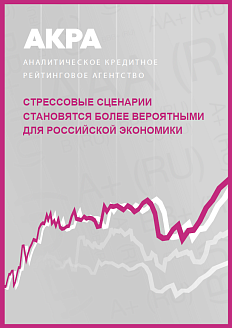The errors in migration were caused, among other things, by the lack of a migration strategy and coordinated migration-related decision-making processes. As a result, in contrast to the previous historical periods, the migration policy in post-Soviet Russia was unable to match the nationwide strategy of turning migration into an efficient development resource.
The main problem of Russias migration policy today is that it lacks conceptual clarity and clear guidelines for the future. Russia has never managed to arrive at a substantiated idea based on considerations of expedience and adopted at the official level of how many migrants it needs, and what their role in the future development of the country should be.
Russias declining attractiveness to potential migrants is a challenge of todays Russia. This is mainly the result of the countrys contradictory and incoherent migration policy which, while officially being aimed at attracting permanent migrants in general and «compatriots» in particular, actually creates more administrative obstacles to incoming migrants wishing to legalise their status, seek employment and settle down in Russia. This position has a negative «demonstration effect» on potential migrants, and
runs counter to the strategic objective of stimulating an influx of migrants in order to mitigate the demographic crisis in Russia.
Migration remains largely uncontrolled despite the seemingly active work of the federal migration authorities. This circumstance results in the unregistered employment of a sizable portion of migrants, deforms the Russian labour market and provokes widespread exploitation of migrants, up to and including forced and slave labour and human trafficking. Russian society is concerned about the obvious absence of an effective immigration control mechanism, which turns migration into a burning problem on the domestic political agenda and increases radical nationalist sentiments.
The migratory outflow of Russian citizens is a serious demographic and economic challenge for the country. The high level of education and qualifications of the Russian citizens leaving the country is particularly painful to the economy. This, coupled with the low educational levels of labour migrants arriving in Russia to seek employment, worsens the quality of the workforce available in the Russian labour market and hampers innovative development of the Russian economy.
Unfavourable internal migration trends. Migration trends within Russia exacerbate the already uneven and asymmetric distribution of the population across the country. While there are objective historical and climatic reasons for this irregularity, it is being worsened by the lack of forethought migration policy of Russia.
The strategic goals facing Russias migration policy need to be reflected in all migration-related legislative documents and administrative decisions. As applied to international migration, these goals are to stimulate the influx of permanent migrants in order to stabilise the permanent population in Russia, as well as the numbers of temporary migrants in order to replenish the shortages in the Russian labour market.
As applied to internal migration, these goals need to stimulate people to move to strategically important eastern regions of the country. It is unacceptable for newly adopted pieces of legislation to contradict these goals. Visa-free travel across borders needs to be preserved for the sake of continuing relations in the post-Soviet space. The CIS is a battleground of competing interests
for a number of global and regional powers. Many international players are striving to
bring the former Soviet republics as far apart from one another as possible, both politically
and economically.
Russia, by contrast, is interested in reinforcing the political and economic integration of the region. In this situation, visa-free travel across the borders that separate the former Soviet republics supports the historical unity of the post-Soviet
space. In this sense, the Russian migration strategy matches its foreign policy strategy, and could become an additional positive factor in preserving political stability in the region. The main goal of labour migration is to create a working model for attracting foreign workers,
one that would be recognised by both Russian employers and migrants, and would proceed from the actual needs of the Russian labour market, while not encroaching on the rights of Russian citizens and guaranteeing the rights of migrant workers.
The policy of attracting migrant labour should be an additional, rather than the primary, instrument in rectifying the situation in the labour market. In this sense, the state needs to determine the actual labour shortage on the Russian market, assess the possibilities for redistributing existing national labour resources, and to use this information to calculate the number of migrants that need to be brought into the country. This task needs to be achieved in conjunction with the implementation of the governments socioeconomic, employment, education and regional development policies.
Putting a cap on the number of foreign labour migrants is not the only way to protect the interests of the national workforce. The priority right of Russian workers to employment already guarantees them an advantage in the labour market. Implementing the principle of equal pay for equal labour for migrants and nationals that is enshrined in legislation is another practical protection mechanism in the national labour market: it prevents migrants from being perceived as a source of cheap labour.
On the other hand, the construction of artificial obstacles to foreign workers seeking employment in Russia, such as having to pass a test in the Russian language, history and law (which is, of course, appropriate in the case of foreigners wishing to obtain permanent residence or Russian citizenship) in order to obtain a work permit, forces migrants to seek illegal employment. To supply the Russian market with properly qualified foreign labour, the problem of professional training for migrants needs to be addressed at the government level. This is a burning problem, as demonstrated by the high unmet demand for workers in the Russian labour market, despite significant inflows of foreign labour.
Experience suggests that the level of professional and linguistic qualifications obtained by potential migrants in their countries of origin often fails to meet the expectations of Russian employers. It would be advisable to organise migrant workforce training in Russia at existing vocational schools and setting up new ones. This would ensure the necessary level of professional and linguistic qualifications. Training should be offered on the basis of student loans, on condition that the migrants will subsequently pay the loans back while working in Russia. When citizens from the CIS who have undergone professional training in Russia subsequently return to their respective countries, their professional experience and qualifications will help in the development of those countries, thus increasing the stability of economic development in the entire region. Simplifying the academic mobility and educational migration procedures is one of the most important factors.
Measures for attracting university instructors and scientists could revive Russias innovative economic development. Attracting foreign students from the CIS countries to Russian universities can be viewed as an investment in the human capital
of Russias partner countries, which has both an economic (training personnel for developing the national economies of the CIS countries) and a political dimension (so-called «soft power», which is capable of bolstering Russias political positions in the region).
The internal migration policy needs to become an important component of the government strategy. Economic measures to stimulate internal migration, such as social benefits, preferential loans to buy homes and tax benefits, including for small businesses, could partially offset the low mobility that is typical of the Russian population, channeling migration flows in a way that would be favourable for the state.
The migration legislation needs to be codified. Compliance with the migration legislation (both by migrants and by authorised migration agencies) needs to be subject to strict and effective controls. The migrant integration policy must be based on extended and updated databases. A public-private partnership could be one of the mechanisms to implement the migrant integration policy.







